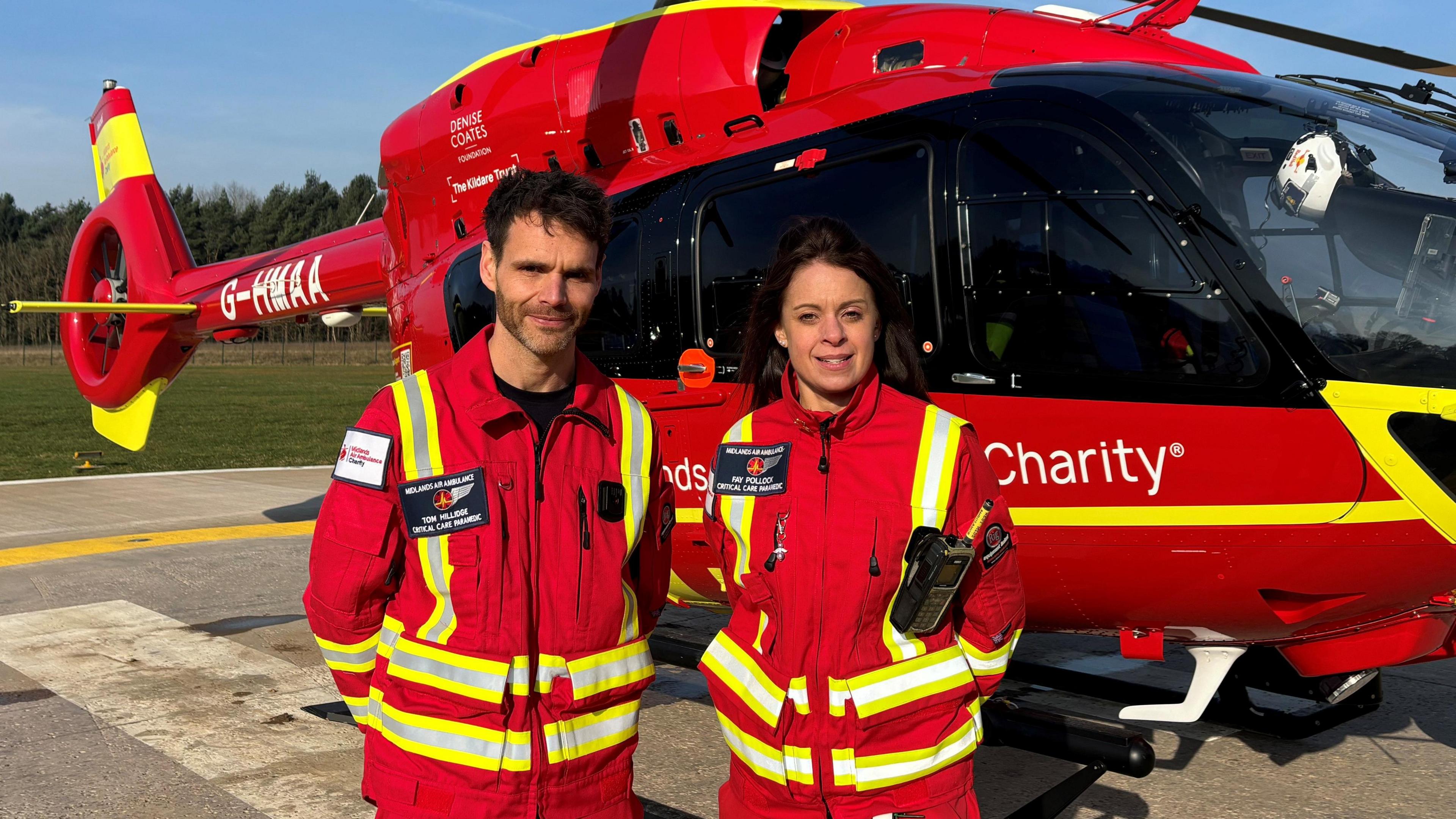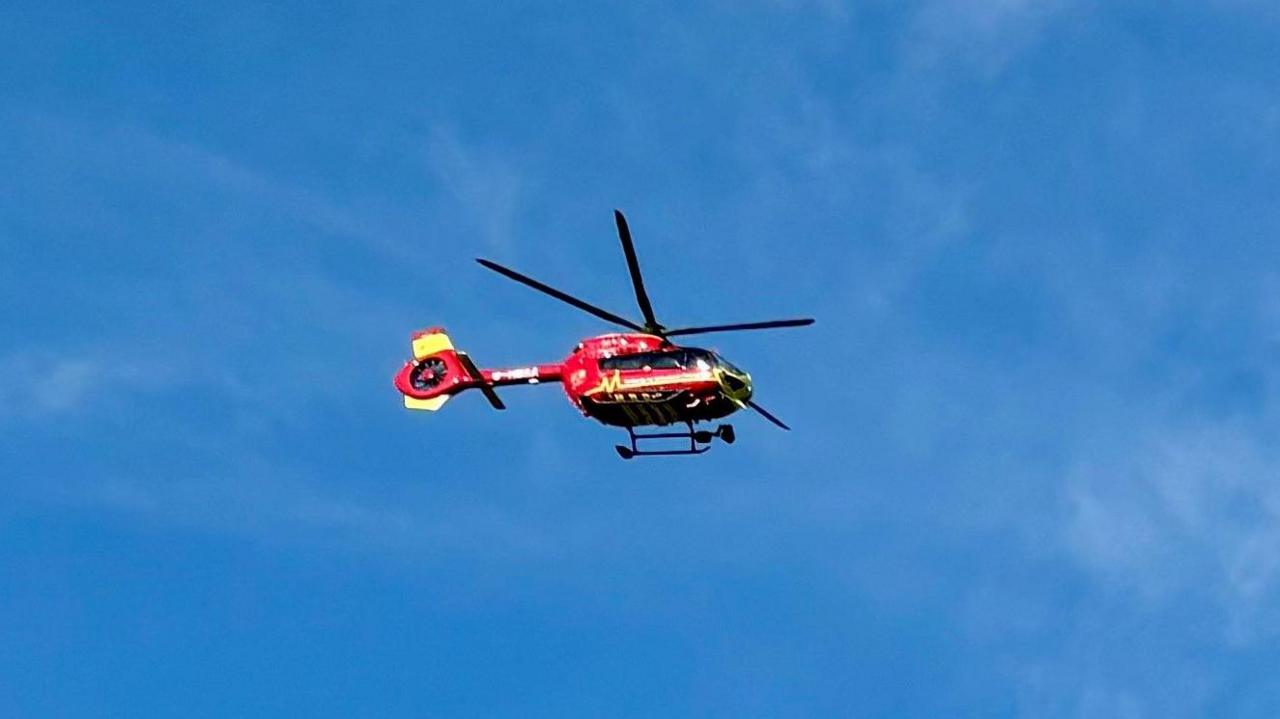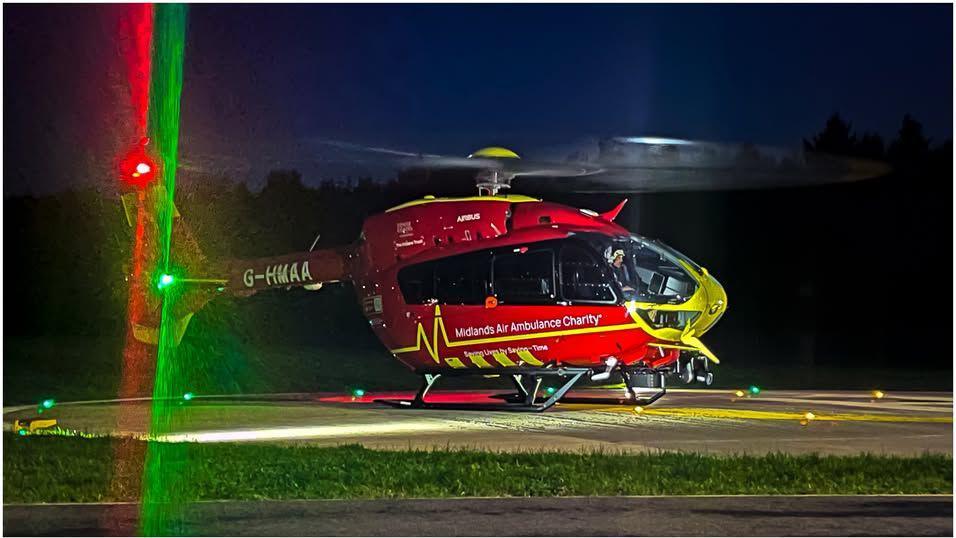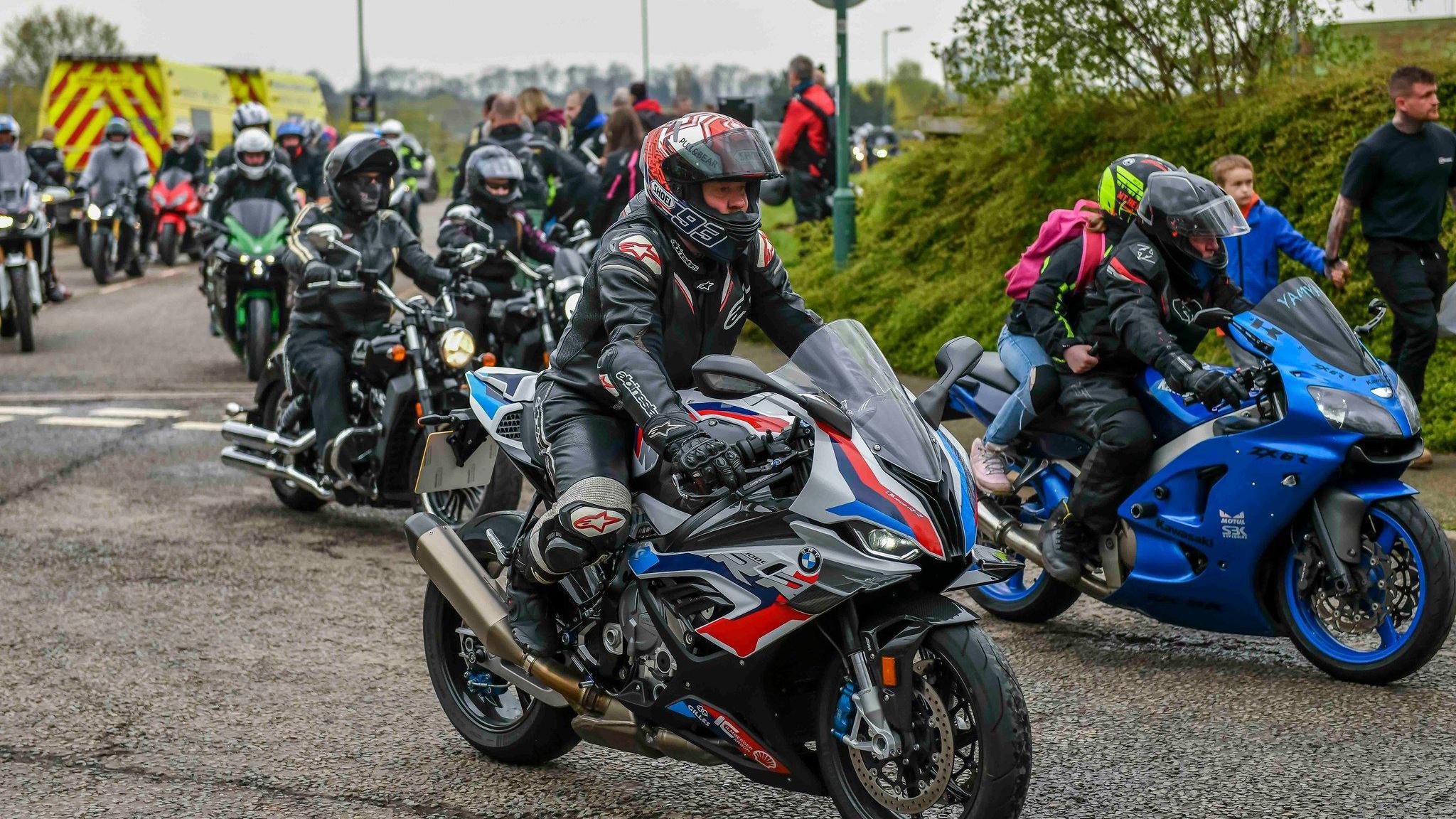Air ambulance launches new fundraising campaign

Critical Care Paramedics Tom Hillidge and Fay Pollock have been working on the charity's new H145 helicopter
- Published
Critical care paramedics working for Midlands Air Ambulance Charity (MAAC) have described their work as "fulfilling and emotional".
The charity serves six million people across Worcestershire, Shropshire, Staffordshire, Herefordshire, Gloucestershire and the West Midlands.
"Whether it be day, night, sunshine, minus six or 30 degrees - you have to give everything for that person to have a chance of walking out the other side, and to be a part of that is just extremely emotional," said paramedic Fay Pollock.
The charity receives no government funding, and now for the first time ever, MAAC is offering the public a chance to have their name on a helicopter for a donation fee.
The new campaign is called High Flyers, external, and for a donation of £150, people can have their names featured on the chevrons on the underside of a new H145 helicopter.
Every name will represent a story, tribute and connection to the charity - while the charity continues to save lives.

Each air ambulance mission costs an average of £2,950
Each year it costs £16 million to maintain the three aircraft, critical care cars and the provision of a lifesaving service.
Each air ambulance mission costs an average of £2,950. Each critical care car mission costs £288 on average.
Since 1991, MAAC has completed 78,365 missions, 263 of those were last month.
It is one of the longest established and busiest air ambulance organisations in the UK.
Tom Hillidge is also a critical care paramedic and has described his job as "the most satisfying in the world".
"The majority of work we go to are cardiac arrests, road traffic collisions, serious falls from heights and other traumatic injuries," he told the BBC.
"Our exposure, experience and education means we can correctly assess and diagnose critically unwell patients at the roadside."
Get in touch
Tell us which stories we should cover in Birmingham and the Black Country
Follow BBC Birmingham on BBC Sounds, Facebook, external, X, external and Instagram, external.
Related topics
- Published28 December 2024

- Published31 August 2024
